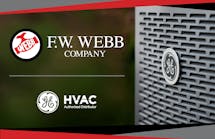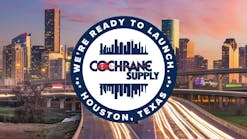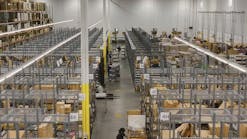Every business, at some point, could benefit from a subject expert to direct, guide or consult with them. The expertise might come in the form of a new manager of business development to help grow a business' marketing profile, or a CFO to more effectively manage growing finances, or a dedicated director of human resources to ensure a growing staff is properly recruited, incentivized and compensated and all appropriate labor regulations are followed. However, every business also can make use of expertise that it does not need permanently, but rather for a finite period of time.
This temporary expertise requirement could be to help a business convert its manual accounting system to an electronic system, develop a new company logo, or in a much more down-to-earth arena, enhance or optimize any link to its supply chain, from assessing locations for new remote stocking depots, to optimizing warehouse layouts, to enhancing productivity through developing more effective work practices. For the last items in this list of improvements, it would be best to hire a supply chain expert to answer those key questions — not as a permanent employee, but as a temporary asset. Whenever you need to select such an expert, you want to get the right expert for your industry in general and your task at hand specifically. But how do you ensure you are making the best choice for your business' immediate need? There are specific considerations you need to cover to ensure you receive the most from your selected supply chain expert.
The first consideration when identifying the best supply chain expert to assist you is direct experience. Do they have specific experience in your industry and segment? Experience in manufacturing in your industry might not translate well to a distributor's warehouse environment. Further, is that experience diverse? Are they familiar with multiple operations or businesses of the appropriate type? Diverse experience will allow them to avail you of the best ideas and practices from various other operations, not just a single business, and grant maximum possible improvements to your business.
Determine if the potential expertise is right for your size business. If you are a $100 million distributor, the optimal subject expert for you would probably not be the best expert for a $15 million business or a $1 billion business. Be sure your chosen expert has experience, and demonstrated success, with assisting businesses of a similar size as yours (or to where you project your business will grow). Someone who has only worked with much smaller organizations may not be the best choice to help you identify the investments required to maximize a larger business. Someone who has only worked with much larger businesses may not be sensitive to the operations changes and lower-level investments that will drive the best return on investment for small or midsize businesses.
The last quality you should seek is experience outside your industry. This is not instead of experience in your industry, but in addition to it. Making supply chain enhancements a potential competitive advantage for your business entails not only being as good as your competition, but better than your competition. Dell's supply chain triumphs are lessons for more than just computer manufacturers who sell direct to consumers. The ability of leading pharmaceutical manufacturers to track lots through their supply chain with near perfection can provide insight into how to increase inventory and order accuracy for any business. Taking the best lessons from inside your industry, as well as applicable practices from best-in-class supply chains outside your industry, can imbue your supply chain with capabilities superior to that of your competitors and, thus, offer you a competitive advantage.
Beyond the experience component of your potential supply chain expert and its organization, you should give serious consideration to their objectivity. Are they independent in their approach, or do they sell equipment aimed at enhancing supply chains? If they do, then they could likely drive solutions that rely on their line of equipment. This will not necessarily result in a bad solution but may not result in the best one for your business. The surest way to identify the best solution for your business is to ensure you hired a subject expert who is independent, not seeking to sell equipment or computer systems or do anything other than identify the best path for your supply chain improvement.
Finally, and this is something applicable to any service for which you might pay, references are key. The supply chain expert should avail you of numerous pertinent references. These should be relevant within the last three to five years, in similar-sized businesses both in and (as discussed above) possibly outside your industry. Also, ask about clients who have repeatedly engaged your prospective supply chain expert. Repeat business is a very good sign that a supply chain consultant has provided value to the businesses engaging them, and one of the best signs that they should be able to help your business achieve a competitive advantage through a best-in-class supply chain.
Not all businesses require a full-time supply chain expert. While the largest corporations' needs surely justify newly minted positions such as chief supply chain officer, smaller organizations can advance their supply chain capability by carefully considering the use of a supply chain expert to guide them to a competitive advantage.
Bryan Jensen has 25 years of experience in retail and wholesale distribution, transportation and logistics and is a vice president and principal with St. Onge Co. in York, PA, assisting clients in maximizing their operational capability. St. Onge Co. is a material handling and manufacturing consulting firm that specializes in the planning, engineering and implementation of advanced material handling, information and control systems supporting logistics, manufacturing and distribution since 1983 (www.stonge.com). Contact Bryan at 717/840-8181 or [email protected].
© 2011 Bryan Jensen








